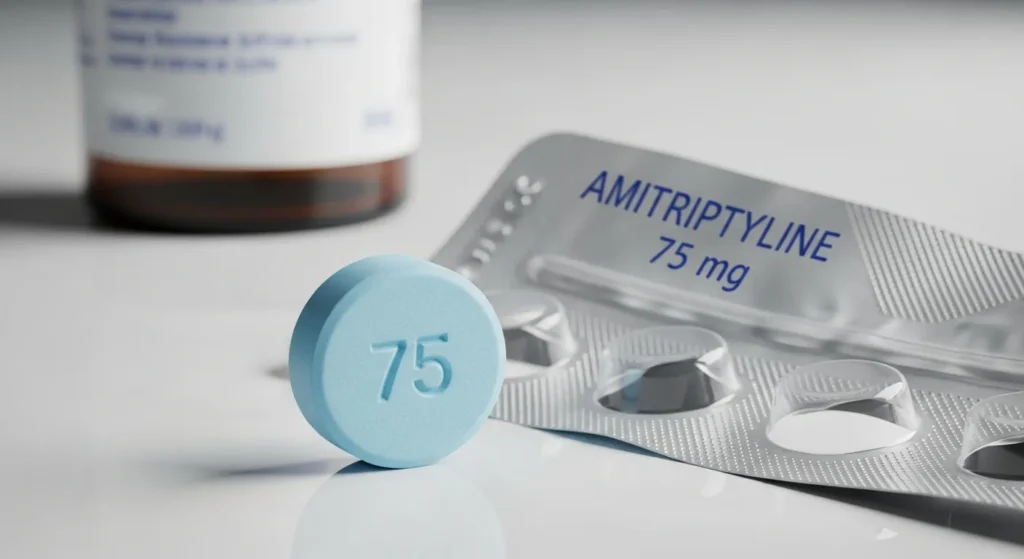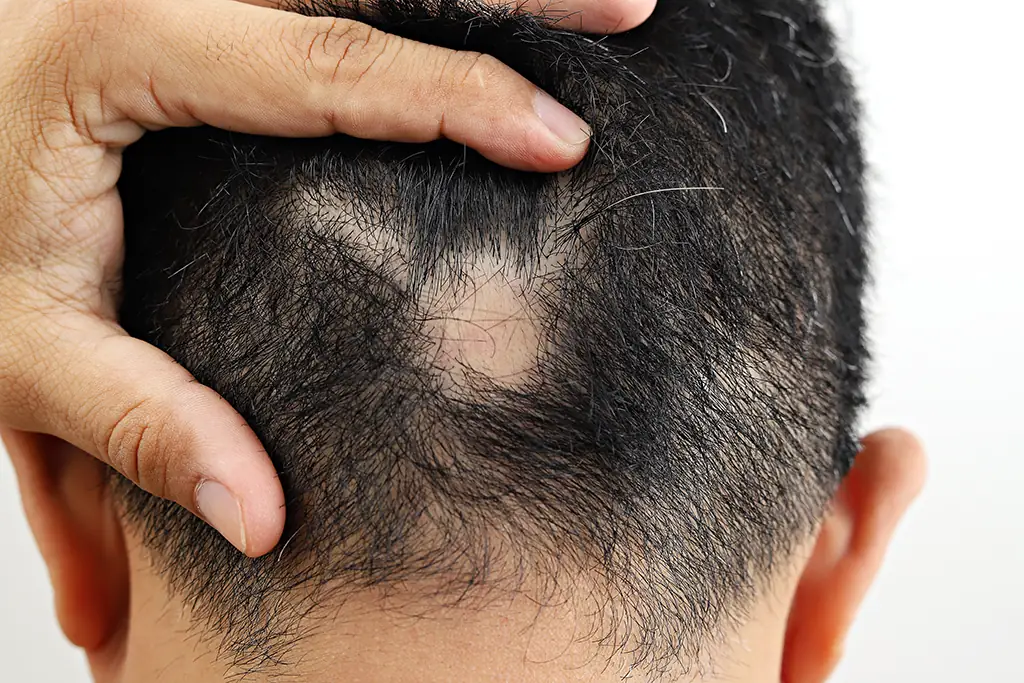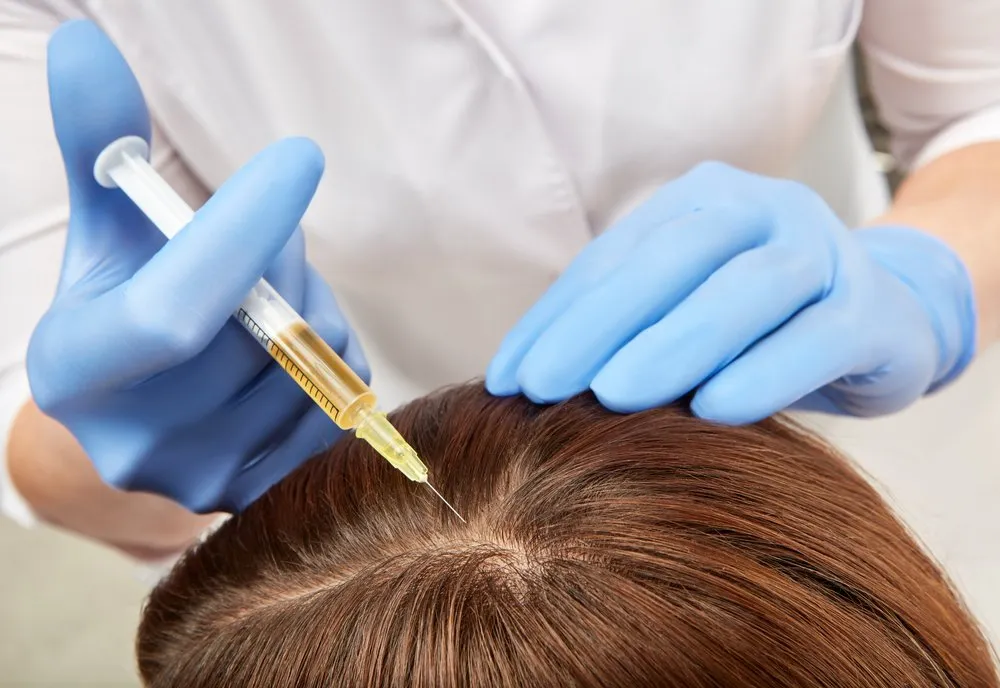Experiencing sudden hair thinning while on medication can be worrying. In this article, we explore amitriptyline and hair loss, focusing on why it may occur, how rare it is, and what you can do about it.
You’ll learn whether this effect is usually temporary, what steps to take for healthier regrowth, and when to see a specialist. Backed by medical insights and patient experiences, this guide is designed to reassure and inform your next steps.
Understanding Amitriptyline and Its Uses

What is Amitriptyline?
Amitriptyline is a tricyclic antidepressant (TCA) first developed in the 1960s. While originally prescribed for depression, its use has expanded to a range of conditions because of its effects on serotonin and norepinephrine regulation.
Why is Amitriptyline Prescribed?
Today, amitriptyline is widely used not only for depression but also for:
- Chronic pain syndromes (fibromyalgia, nerve pain)
- Migraine prevention
- Sleep disorders such as insomnia
- Anxiety and tension headaches
Does Amitriptyline Cause Hair Loss?
Incidence and Rarity
Hair loss from amitriptyline is considered very rare. Reports suggest it may affect fewer than 1 in 1,000 users. Most patients never experience this side effect.
Side-Effect Listings
Reputable medical sources, such as the Mayo Clinic, list “hair loss or thinning” among the possible side effects of amitriptyline, though the incidence is unknown. This places it in the category of uncommon but documented.
How Amitriptyline May Trigger Hair Loss
The Role of Telogen Effluvium
The most likely mechanism is telogen effluvium, a temporary condition where more hair follicles than usual shift into the resting phase. After a few months, this can result in diffuse shedding across the scalp.
- Typically begins 2–3 months after starting the medication.
- Hair appears thinner rather than patchy.
- Often reversible once the trigger is removed.
Drug-Induced Alopecia and Amitriptyline
Like many medications, antidepressants can occasionally cause drug-induced alopecia. Amitriptyline, being a TCA, has been included in lists of drugs with this potential, though documented cases are rare compared to SSRIs or mood stabilizers.
Evidence & Research
Broader Antidepressant Studies
A large study published in Annals of Clinical Psychiatry (2017) noted an association between antidepressant use and hair shedding, especially SSRIs. Amitriptyline, however, was not a primary focus, which highlights the lack of specific large-scale studies.
Gaps in Data
No randomized clinical trial directly measures the rate of hair loss with amitriptyline. Current knowledge comes mainly from case reports, patient experiences, and pharmacovigilance databases. This makes expert input essential in guiding patients.
Is Hair Loss from Amitriptyline Permanent?
Typically Reversible
Most cases of hair loss linked to amitriptyline are temporary. Once the drug is stopped or the dosage adjusted, hair regrowth generally resumes.
Recovery Timeline
- Onset: Hair shedding may appear 2–3 months after starting treatment.
- Regrowth: Hair usually begins to regrow within 3–6 months after stopping or changing medication.
- Full recovery: Can take 9–12 months depending on the individual.
Rare Exceptions
If other conditions (such as androgenetic alopecia, thyroid disorders, or nutritional deficiencies) coexist, hair loss may persist even after stopping amitriptyline. This is why proper diagnosis is key.

What You Can Do: Prevent and Manage
1. Talk to Your Doctor First
Never stop amitriptyline suddenly. Discuss your concerns with your prescribing doctor or a dermatologist. Possible adjustments include:
- Lowering the dose
- Switching to an alternative medication
- Combining with supportive treatments
2. Supportive Nutrition
A nutrient-rich diet can help minimize shedding and encourage recovery:
- Protein – essential for hair structure
- Iron and Zinc – prevent deficiency-related shedding
- B-vitamins and Biotin – support healthy growth
- Vitamin D – linked to reduced hair loss in some studies
3. Stress & Lifestyle Management
Chronic stress can worsen telogen effluvium. Practices like yoga, meditation, and proper sleep hygiene may support recovery.
4. Scalp & Hair Treatments
- Minoxidil (topical) – stimulates regrowth in some cases
- Low-level laser therapy – a non-invasive option for hair density
- Mild shampoos and conditioners – reduce hair shaft damage
5. Advanced Options
If hair loss becomes persistent or severe:
- PRP therapy (platelet-rich plasma) may help stimulate follicles
- In rare, long-term cases, a hair transplant may be considered

FAQs
Does amitriptyline always cause hair loss?
No, it is a rare side effect. Most patients never experience it.
How soon after starting might hair loss begin?
Typically within 2–3 months, consistent with telogen effluvium.
What’s the difference between telogen effluvium and pattern baldness?
Telogen effluvium is diffuse and temporary; pattern baldness is progressive and genetic.
Can I use minoxidil while taking amitriptyline?
Yes, in most cases it is safe, but consult your doctor before combining treatments.
Should I get blood tests?
Yes, tests for thyroid function, iron, and vitamin D can help rule out other causes of hair loss.
Your Next Step
If you’re experiencing unexplained hair shedding while taking amitriptyline, don’t panic—help is available. Book a consultation with Dr. Rana Irfan in Islamabad to receive a professional evaluation, rule out other causes, and create a personalized recovery plan.
